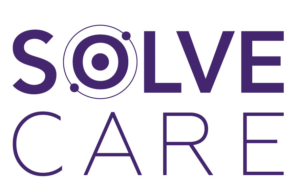Contents
- What is Blockchain in Healthcare? A Short Overview
- Blockchain in Healthcare Today: Where Are We Now
- Top 3 Trends in Blockchain and Healthcare for 2020
- Healthcare Blockchain Use Cases: Top 4 New and Growing Projects in 2020
- Blockchain in Medicine: What Experts Say About 2020
- Key Actionable Insights
What is Blockchain in Healthcare?
A Short Overview
Both public and private healthcare organizations remain under extreme pressure. With more and more technologies entering the market, it gets increasingly difficult to integrate them to reduce the costs, and at the same time, increase the quality of services provided to patients. Then there are also extensive law regulations, data security challenges, transaction management issues, etc.
Blockchain technology in healthcare remains the most promising (yet radical) way to digitally transform the industry and help organizations finally overcome the inefficiency and excessive costs of their operations. Of course, the potential benefits of blockchain for healthcare are not only about economics. According to the latest surveys, here are the four major directions in which this technology is expected to help the industry:
- Data privacy – Blockchain comes with cryptography and multi-signatures. Together they make sensitive information virtually impossible to steal or modify without its owner’s consent.
- Redundancy decrease – One blockchain solution can be used for all local healthcare parties: patients, lenders, hospitals, insurance companies, and other organizations. Fewer data silos and less complicated interfaces will lead to significant improvement in employee productivity.
- Innovation – Blockchain applications in healthcare are much easier to extend and develop, and they are designed to stimulate further improvements. Most innovations are expected to appear in the fields of preventative care and community-based healthcare models.
- Risk mitigation – with smart contracts and other advantages “medical blockchain” brings, health organizations can significantly decrease the risks related to transaction processing, avoiding compliance breaches and other processes involving two or more parties.
Yes, these ‘features’ were known from the very beginning, and we have no intention to answer the question ‘what is blockchain technology in healthcare?’ for the millionth time. Instead, consider this: last year, 53% of the 1,386 senior executives surveyed by Deloitte revealed that blockchain technology is getting so critical for their organizations it’s among their top 5 priorities. For healthcare organizations, this percentage is expected to be even higher. So in 2020, we expect even more news about emerging projects, partnerships, and innovations related to using blockchain in healthcare.

Blockchain in Healthcare Today:
Where Are We Now
Before we move on to forecasts and expectations, it’s important to make a blockchain healthcare review and understand the current state of the industry. First of all, the blockchain is no longer just an innovative opportunity to consider or technology to polish and adopt. It is already used in healthcare organizations worldwide. One of the most prominent examples here is Solve.Care. Speaking on the state of this solution, Pradeep Goel reported that “the technology is already positively impacting the lives of patients and healthcare professionals. [The blockchain-based, patient-centric approach adopted by Arizona Care Network] puts data in the hands of the customer, which in turn empowers them to receive the care they need and deserve.” According to Robert Miller (ConsenSys Health), another remarkable thing that happened with healthcare blockchain companies lately is that finally, we can see different companies (and often competitors) solving common problems together. Indeed, read on and you’ll see that most of the projects mentioned in this article were possible thanks to the collaboration of two or more parties.
The main focus of the industry was on using patients’ data without compromising their privacy. Such new technologies as federated learning, fully homomorphic encryption and zero-knowledge proofs were used to bring new features to existing blockchain technology. Healthcare companies will definitely continue to accelerate this momentum around data privacy in 2020. To support this statement, around a dozen new business networks taking advantage of blockchain had been revealed in 2019: Mediledger, MELLODDY, Remedichain, DSCSA, Health Utility Network, Trust Your Supplier, AI4VBH Centre, Coalesce Health Alliance, Clinical Supply Chain Working Group and others. Some of these names will be mentioned below in the blockchain healthcare use cases section. Also, the next new products were launched: Solve.Care, SimplyVital, MediBloc, Decent, Ecrypgen, Molecule, Nebula Genomics, and Owkin. If you study them, you’ll easily notice the shift from the proof-of-concept projects to commercial, full-fledged deployments that help the industry bloom.

Top 3 Trends in Blockchain and Healthcare for 2020
While some projects will experience more highlights in 2020 than others, there are also general trends that should drive the industry in the upcoming year. We selected the next three trends due to upcoming changes in regulations, political news and the focus taken by notable companies.
Drug Supply Chain Digitalization
Counterfeit drugs are one of the most damaging problems in healthcare. The World Health Organization suspects 10%+ of all medicines in the world are counterfeit. And the EUIPO report states that the pharmaceutical industry lost 16.5 billion euros in sales due to drug piracy in 2019. With ‘blockchain in medicine’, healthcare organizations will be able to track the state and geolocation of drugs through supply chains. If the item was tampered with, handled carelessly or simply deteriorated due to negative environmental conditions, with the newest blockchain solutions manufacturers should be able to quickly recall it and take any other appropriate action. MediLedger Project is one of the most promising startups in this area, particularly due to the fact that it’s partnering with AmerisourceBergen, Pfizer, McKesson, and Genentech. Although we’ve been waiting for significant news in this area for years, in 2020 it is expected that the FDA’s Drug Supply Chain Security Act will increase regulatory oversight of harmful drugs. Hence many companies are getting ready to demonstrate adherence to DSCSA.
Rise of Emerging Markets
Initially, many healthcare blockchain companies were targeting the US market, it is expected that in 2020 we should see the further rise of technology in other countries. In China, Xi Jinping expects blockchain to play “a major role” in the development of the digital economy, with corresponding intentions included in their current Five-Year Plan. Estonia was the first to make use of blockchain for healthcare throughout the country and will certainly keep polishing the technology this year. The UAE is planning to have a blockchain-based government as soon as in 2021. With such news, the industry may reshape itself unexpectedly. For instance, talent migration may cause a lack of experts in some parts of the world (though globalization should minimize this effect), and investors might shift their focus from funding innovations to scaling and marketing the existing solutions to conquer new markets.
Improvements in Clinical Trials
Clinical trials are accompanied by lots of complicated tasks: data management, bookkeeping, reporting, etc. Blockchain for healthcare will come in handy with its ability to enable data integrity and transparency, streamline and automate report generation and other routine processes, and eventually improve data quality. At the beginning of 2019, Boehringer Ingelheim Ltd. and IBM Canada started their collaboration in exploring the blockchain technology in clinical trials. In 2020 the first reports should appear, helping organizations all over the world to decide on switching to the blockchain.
In addition to that, blockchain might also indirectly help solve another problem of clinical trials: finding the right candidates. Although you can find automated solutions to identify people for studies, they’re not perfect because they use data silos generated by third-party outdated or legacy software. Adopting blockchain will enforce data interoperability for easier patient identification (and many other purposes). This is actually what medical blockchain companies like 4Medica can already offer with existing SaaS solutions.
In general, things in the healthcare industry are speeding up dramatically compared to previous years and blockchain technology is the main driver of this change.

Healthcare Blockchain Use Cases:
Top 4 New and Growing Projects in 2020
Blockchain can be used in the healthcare industry in a variety of ways. But which are the most promising in 2020? We picked four projects illustrating blockchain use cases in healthcare based on their growth speed, public announcements, and signed partnership deals.

Solve.Care
While most other blockchain startups are trying to address specific healthcare challenges, Solve.Care aims to build a healthcare delivery platform for most industry players, from insurance businesses to government agencies. What’s most striking is that the solution has already started conquering the global market with strategic partnerships:
- In April 2019, Arizona Care Network had received the NAACOS Innovation Award for implementing Solve.Care.Wallet for physicians.
- In June, Boehringer Ingelheim Pharmaceuticals, Inc., one of the top 20 global pharma companies, announced a collaboration with Solve.Care to launch a patient-centric care network based on its platform.
- In July, a US insurer Uber Health partnered with Solve.Care and integrated its transportation solutions into Care.Wallet.
Other than that, Solve.Care has been actively generating buzz in media by getting various nominations and awards, hosting meetups, organizing contests and doing so much more. Undoubtedly, it’s the most promising, revolutionizing and ambitious project leveraging the blockchain in healthcare today.
![]()
HealthVerity
Handling patient data comes with lots of troubles. First, you need to get patients’ consent to manage their data. Then you need to stay HIPAA compliant at all times. Data protection is another issue with the growing number of information leakages. HealthVerity is offering a blockchain-based platform that manages the information collected and stored by healthcare facilities. By eliminating data fragmentation and inconsistency, it is said to help executives make data-driven decisions fast. In 2020 the company has already moved to three times bigger office space, expects to grow its team from 100 to 150 people, and is considered by Tracxn as a “soonicorn” (a soon to be unicorn, i.e. a company having evaluation that exceeds the billion-dollar mark).
![]()
Lumedic
One of the most obvious things medical blockchain companies might simplify is transaction processing. The Lumedic platform does just that and promises to reduce revenue cycle inefficiencies and speed up claim processing. While other startups leveraging blockchain for healthcare often end up failing with their product, Lumedic was already acquired by St. Joseph Health to help them improve their revenue management using smart contracts and machine learning. In 2019 the team had been polishing its solution and in 2020 they plan to announce new partnerships and grow further. Backed up by St. Joseph Health, a healthcare service provider with 60+ medical facilities in three US states, they have all chances to grow faster than any other project in the niche.

Molecule Catalyst
Since blockchain is often negatively associated with cryptocurrencies, it’s important to remember that this technology not only helps reduce costs and bring more privacy. Researches and studies can also be boosted by the use of blockchain in healthcare today. Molecule Catalyst is a crowdfunding platform for scientific research that invented a cryptocurrency to fund its projects. While there’s nothing innovative in the idea, the founders have already announced partnerships aimed at making research in the areas of rare diseases and biogerontology. When blockchain technology makes it possible to speed up scientific advancements, it will become much easier to convince politicians and executives to consider blockchain alternatives for their projects and businesses.
These were the three most promising blockchain healthcare companies in the industry, but if you want to keep an eye on the biggest market players, here’s a list of them: Microsoft, IBM, Guardtime, Gem, Pokitdok, Chronicled, Simplyvital Health, Farmatrust, Patientory, and Hashed Health.

Blockchain in Medicine:
What Experts Say About 2020
The data above leaves no doubt that the industry is evolving, but what actionable insights can you get from these dozens of tech terms, company names, and their intentions? Let’s see what the experts say.
In October 2019, Frost & Sullivan published an analysis of over 250 vendors building blockchain-based solutions for healthcare vendors. The conclusion? The progressive healthcare companies should stop asking “What is blockchain in healthcare” and finally figure out how they should invest in this technology and take advantage of it. Doing that requires executives to analyze their business models before integrating new technologies, and choose projects that have “solid strategies for holistic integration”, says Pradeep Goel, CEO of Solve.Care.
However, while there are already governments leveraging blockchain technology in healthcare at the national level, the US adoption of distributed ledger solutions will probably be slow. Alex Cahana, who is the head of healthcare and blockchain consulting at Genesis Block, believes so because of insufficient social and political interest in changing “healthcare from a centralized, corporate, for-profit system into a self-sovereign, decentralized, doctor-patient-driven one.” However, the 2020 US election may bring other news to the industry.
Key Actionable Insights
Although 2020 may sound as promising for the industry as never before, there are also geopolitical and societal factors that majorly affect the decisions of healthcare organization executives. News like China’s bet on blockchain significantly affect talent migration and levels of investments in the industry. Such changes might be terrible obstacles for some industry players and a life vest for others. And as of the society, general unawareness, skepticism, and stereotypes about blockchain that are far more often associated with hacking threats rather than distributed ledger advantage don’t help promote the global changes in the industry that is so long wanted to be reformed.
Still, the times of considering whether blockchain is the technology healthcare companies need today are gone. The benefits of blockchain in healthcare get more and more attractive. New partnerships arise, many solutions have already hit the market, and now it’s up to healthcare organizations to raise their heads and switch to the new technology to survive and outrun their competitors.



